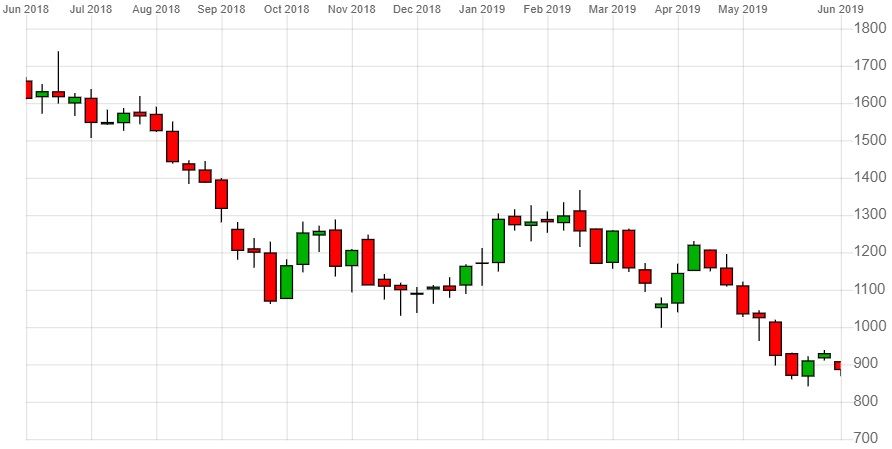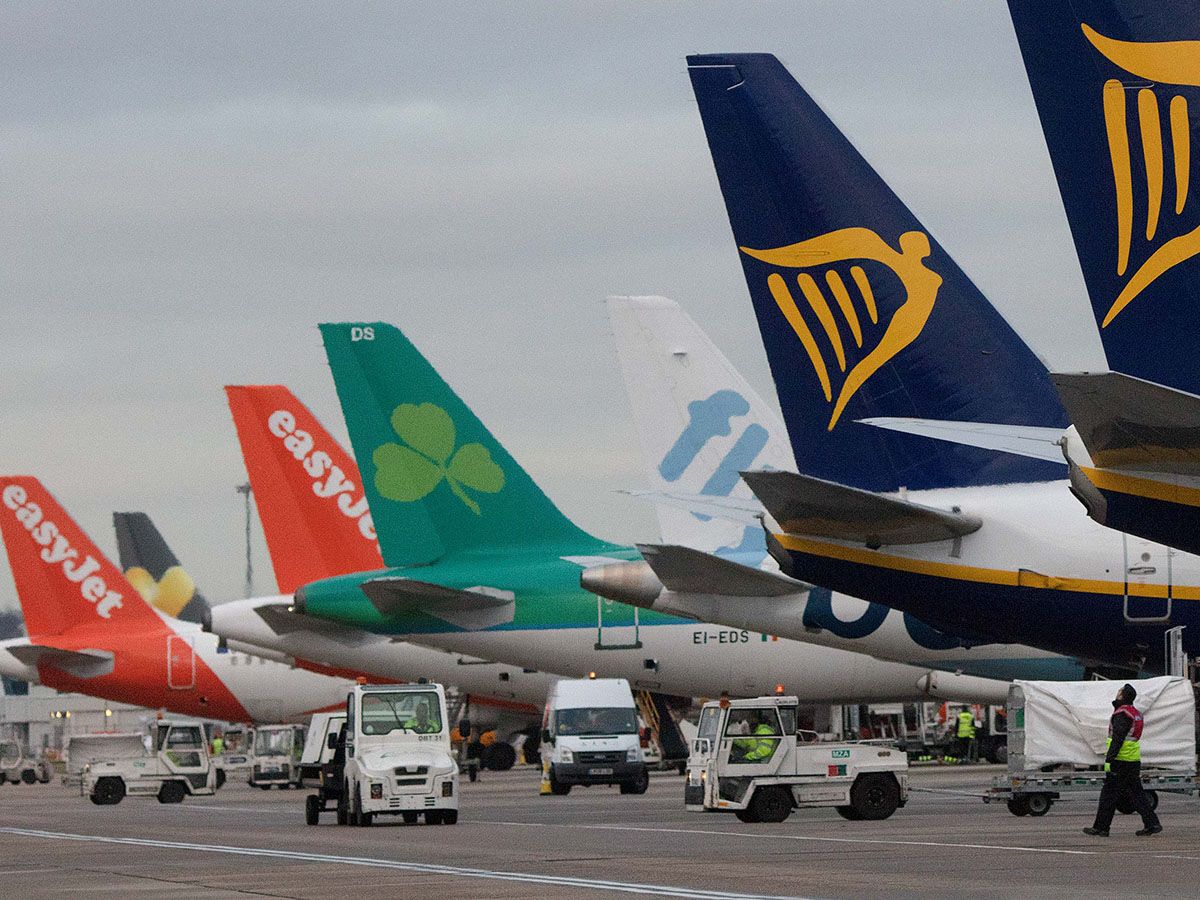Intense competition in the European budget airline sector is keeping fares low – great news for passengers, but not so much for shareholders of EasyJet, Ryanair and Wizz Air.
On Sunday 16 June, Lufthansa [LHA] cut its full-year profit forecast, sending its share price down by 9.5% overnight to €16 when the market opened the next day. Europe’s largest airline group, which operates budget brand Eurowings, blamed “market-wide overcapacities and aggressively growing low-cost competitors”. By the end of the week, the airline’s share price hit a year-to-date low of €14.81, representing a 25% decline since the start of this year.
Lufthansa’s news sent airline stocks tumbling, with the Stoxx Europe Total Market Airlines [T5751] sector index down 5.25% by close on Monday 17 June before hitting a two-year low of €280 on Wednesday. Looking at individual competitors, Irish low-cost carrier Ryanair [RYA] saw its share price hit a year-to-date low of €9.86 on Thursday, while Easyjet [EZJ] and Wizz Air’s [WIZZ] share prices fell by 4.9% and 4.7% respectively throughout the week.
A string of profit warnings
So, Lufthansa is not the only low-cost carrier voicing concerns. In May, Ryanair chief executive Michael O’Leary spoke of an “attritional fare war” that will engulf the market for the next year or two.
In January, the Irish airline was forced to lower full-year earnings forecasts by €100m to between €1bn and €1.1bn – its second profit warning in four months. Rival EasyJet has so far stuck to guidance for 2019 but warned of “softness” for H2. Meanwhile, Hungary’s Wizz Air, one of the few in the sector to post profit growth in the most recent quarter, disappointed analysts last month as it warned profits would be below estimates for the coming financial year.
The overcapacity conundrum
The sheer volume of seats that airlines have available is the key driver behind persistently low fares. EasyJet said last month it expects short-haul capacity across Europe to grow 2.4% over the summer, and to have added 10% more seats on its own flights by the end of the year. Wizz Air plans to boost capacity a whopping 16% by next March.
16%
Wizz Air's planned capacity boost by next March
Higher capacity and lower fares can provide a boost to revenues, but inevitably dilute per-seat margins. While Wizz Air posted a 6% increase in profits to €291.6m for the twelve months to March, its margins fell from 14.1% to 12.5%.
And while load factors – the average percentage of occupied seats on a flight – have been consistently high, with Ryanair hitting 96% in the year to May, analysts believe customers are only willing to fill seats at unsustainably low prices.
The long-term winners
As of last week, Morningstar data shows forward P/E ratios of 14.64 for Wizz Air and 12.5 for Ryanair, both above the airline industry average of 9.83, while Easyjet is trailing slightly behind at 9.43. All three are significantly ahead of British Airways parent company IAG’s forward P/E ratio of 4.35, suggesting investors still have confidence in Europe’s budget brands, despite the recent profit drought.
| EasyJet | Ryanair | Wizz Air | |
| Market cap | £3.48bn | €11.26bn | £2.49bn |
| PE ratio (TTM) | 17.97 | 12.94 | 13.31 |
| EPS (TTM) | 48.90 | 0.77 | 257.50 |
EasyJet, Ryanair & Wizz Air share price comparison table, Yahoo finance, 24 June 2019
Speaking to OPTO, Craig Jeruzal, UK investment analyst at SVM Asset Management, expects Wizz Air and Ryanair to achieve future share price gains. “They have a fundamentally lower cost structure … and in the airline industry, which is actually a commoditised product, those with the most cost advantage will be the longer-term winners.”
Particularly as the EU continues to curb carbon emissions (it is currently considering axing fuel tax breaks for airlines), airline executives will be under pressure to spend on new aircraft technology or pay higher levies. Wizz Air and EasyJet are already touting the competitive edge of their respective fleets, which both say are among the cleanest on the continent.
Ultimately, however, Jeruzal is most bullish about Ryanair. “A lot of the problems that they’re facing right now are short-term in nature, and I think people have made the mistake of thinking they’re long-term and structural,” he says. “They have one of the most modern fleets, they have the lowest cost base, and they’re well-positioned to outperform.” Refinitiv data indicates an average price target of €14 for Ryanair, up from around €10 as of last week.
Continue reading for FREE
- Includes free newsletter updates, unsubscribe anytime. Privacy policy





